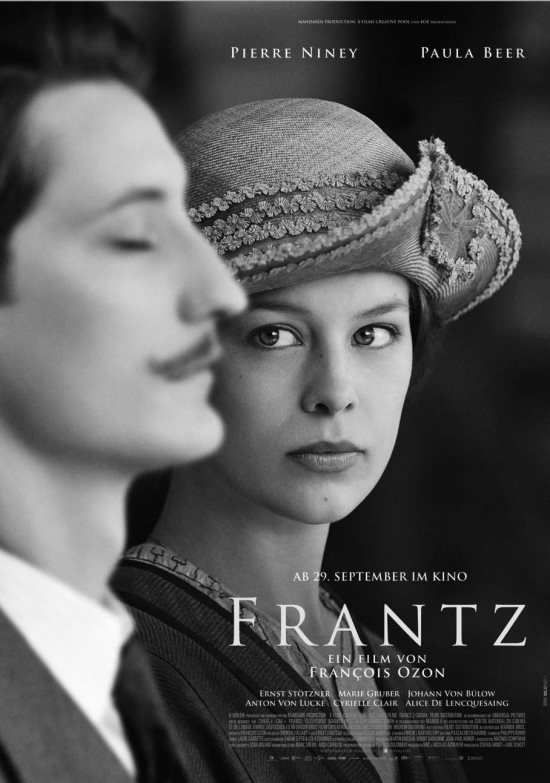
| ||||||
The French/German film touches on many themes such as betrayal, remorse, redemption, forgiveness, courage and the intense absurdity of war. It is also, and perhaps foremost, a compassionate and beautiful portrait of a woman who finds the strength to live in war-torn Europe at the beginning of the 20th century.
French director FranŠois Ozon chose to reinvent 1930 Ernst Lubitsch black and white silent film "Broken Lullaby." The movie starts in a small German town just after World War I. Every day Anna goes to the grave of her betrothed, Frantz, who died during the war. One day she sees there Adrien, a young Frenchman depositing roses on his friend's grave. For Frantz' family and for the Germans in the small town, the presence of the Frenchman in the wake of a bitter defeat provokes passionate reactions. War has created deep scars that even the youth's hopes and dreams will not heal. Anna will grow and transcend her condition, opening a door for hope, even if we all know what will happen 15 years later.
Most of the time the historical movie is filmed in black and white, with elegance, slow but endearing timing, and with a lot more surprises that expected at first. It is the first time that a French film addresses German people's feelings after the first world war. It is done with subtlety and compassion, with mirror effect between the French and German perspectives, highlighting the complete inanity of war.
Ozon explained in interviews for French magazines that he wanted to explore the themes of secrets and lies and that he believed that these themes would carry more strength told in a dramatic time of grief and terrible loss such as WWI in Europe, when millions were killed on all sides. Lubitsch's film was made in 1930, and the director had not, of course, anticipated the World War II. It ended with a new hope of French-German friendship that Lubitsch, a German pacifist that immigrated to the U.S., believed in. Ozon has a different perspective; he shows in his movies the rancor and humiliation created by the Versailles' treaty and, with no desire to judge, points out the emerging signs of revenge.
The character of Adrien, the Army private that survived the war, has been deeply wounded; he suffers what we would call PTSD today. Anna has suffered a great loss, but she has more strength and a fiercer desire to continue to live. The two main characters have a difficulty in explaining their emotions and their inner struggles. Ozon shows that it is through art that they best communicate, via poetry, music or painting. He shows that when people exchange through culture, an understanding is born and bridges are created. Art is a door to enter into the soul of another person, of another people.
The movie is filmed sometimes in German and sometimes in French, with English subtitles of course for American distribution. Ozon said that German was the first foreign language he learned in school and that he had great pleasure filming with German actors. German actress Paula Beer, as Anna, is a classic beauty, full of charm and appropriate self-restraint who dominates the cast, even if Pierre Niney, who plays Adrien, is also completely believable and touching.
"Frantz" will play for a week at the Orinda Theater, starting April 21. More information and tickets at lamorindatheatres.com.
Reach the reporter at:
